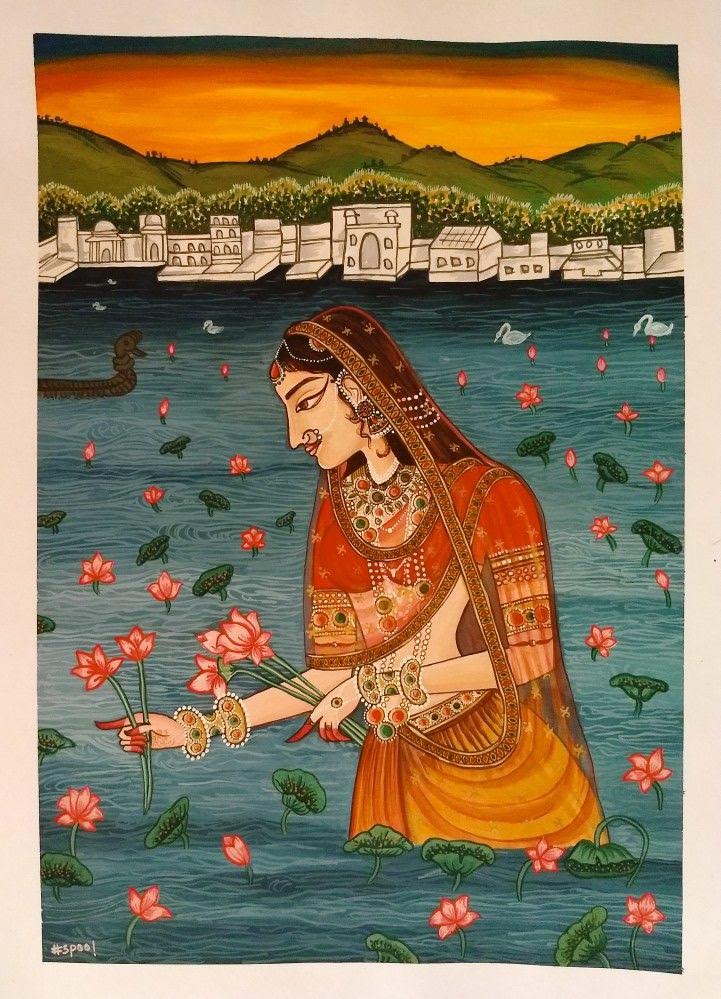Indian Miniature Art
The largest Indian state, Rajasthan, is also the largest in its royalty and this essence of Rajasthan gets reflected in its various elements, which makes the state stand out. One of these elements is its unique and praise-worthy miniature paintings.
Origin of Miniature Art
This art form was introduced in India via the Mughal dynasty, to be precise, by the Mughal Emperor Humayun. The native country of these paintings is Persia.
Both the Mughal Emperors, Humayun and his son Akbar, in their respective reigns, encouraged this art form. Skilled artisans from Persia were brought in to make these beautiful masterpieces. Eventually, these skilled men started to teach this art to the locals.
Soon, the locals started making these, by adding a touch of their own to them, and Rajasthan’s unique miniatures started to carve their story…
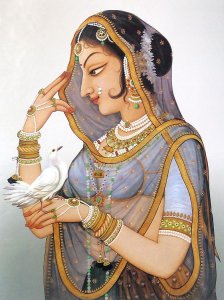
Development of Miniature Art
The locals, being taught by the experts, successfully drew the royals, featuring their royalty yet romance. This gave birth to the most marvelous heritage of Rajasthan, which is still alive today.
These locals artisans were from different parts of Rajasthan. When they went home, with the art of miniatures, they emanated to more local types of these paintings, all, a bit different than the others. Jaipur, Jodhpur, Mewar, Marwar, Bundi, Kishangarh, Kota, etc. are some of the places where slight variations were done.
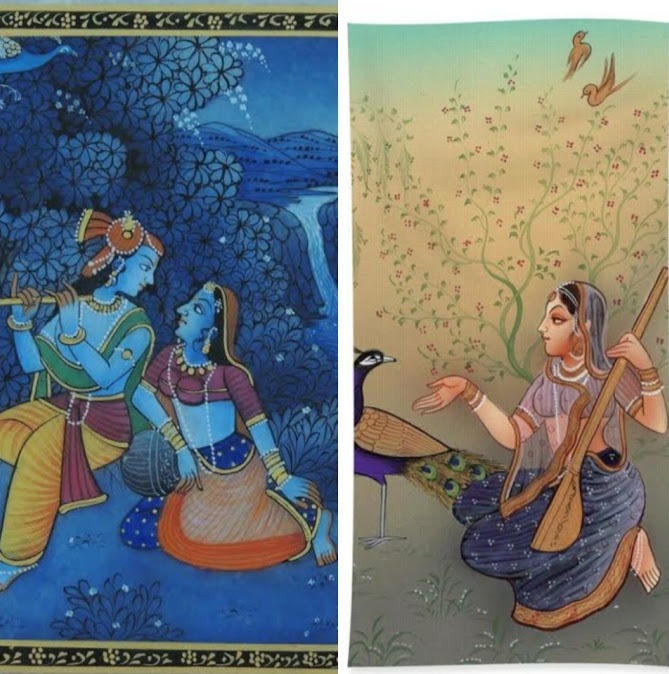
One special and infamous form of these paintings are the Bani Thani paintings. These paintings depict women with crisp strokes, very well defined body curves, long graceful fingers and necks, and almond eyes.
Some even compared the queens and kings to the famous Hindu mythological couple, Radha-Krishna, and painted the royals as these characters in the Bani Thani style. Even many pictures of Radha Krishna along with gopis are drawn.
Apart from these, hunting scenes, daily lives in the kingdom animals and flowers were also drawn.
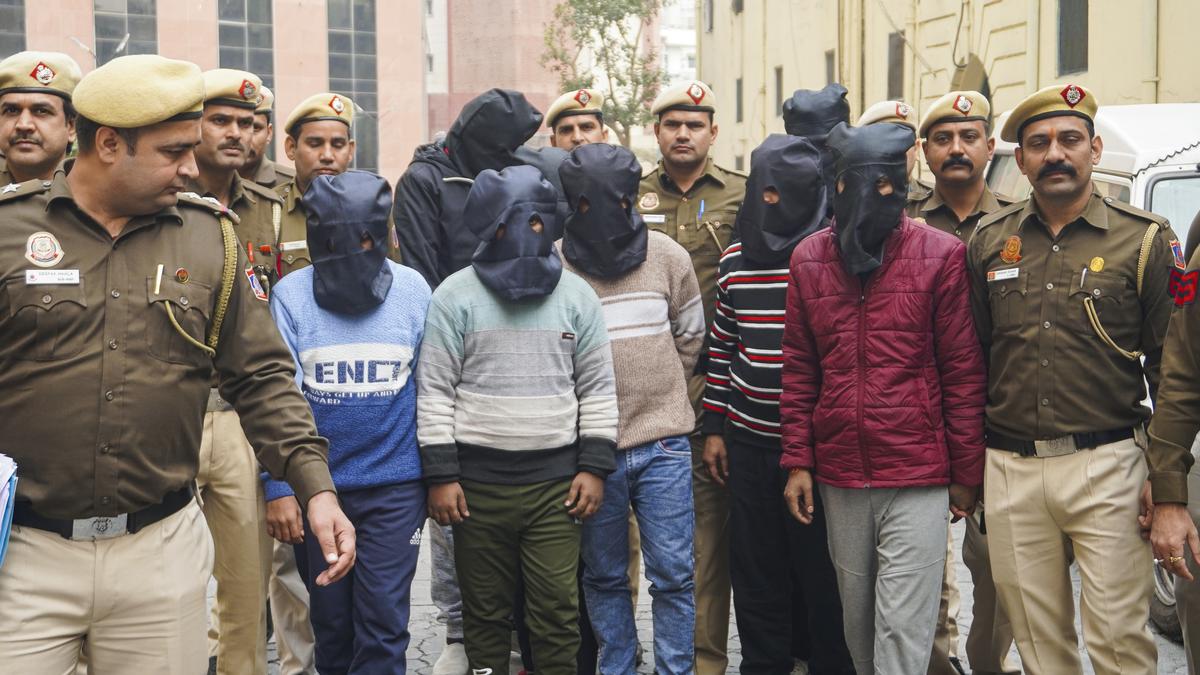
The making of Miniature Art
Traditionally, vegetable colors and minerals were used. Sometimes, even pure gold and silver were used to give that rich touch. Paper, ivory tablets, wooden boards, marble, cloth, and even cloth was used as a medium to draw on.
Brushes needed to be fine, as the paintings had a lot of fine, delicate strokes. Animal hair, for eg. squirrel’s hair, were used for making brushes.
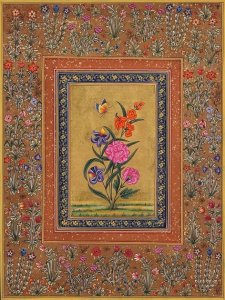
The most beautiful thing about these pieces of art isn’t their beauty, or colours, or history, but the mere fact, that how they have survived the past effortlessly, and still are being admired by the modern generation.

